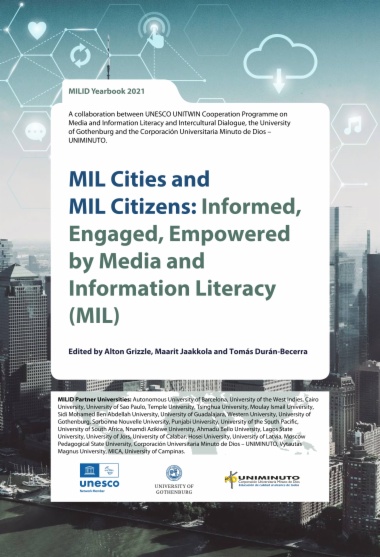UNESCO vision and convening leadership, academic collaboration, and network activities. Accordingly, the spirit of the MILID Yearbooks is to enable a fruitful cross-fertilization of theoretical and practical perspectives by encouraging reflections by scholars and practitioners working in different parts of the world on media and information literacy – this time with relevance to Media and Information Literate Cities.
- Cover
- Title page
- Copyright page
- Contents
- Introduction: Living in Media and Information Literate Cities
- Dispositions, Sensitivities, and Inclinations: The Importance of the Smart-City Citizen
- Theorizing Media and Information Literacy: Emotional Communication through Art for Young People during Unusual Life Experiences
- Data Literacy in the Smart City: Why Smart Cities Should be Populated by MIL Citizens
- Elusiveness of the Algorithm: The Case for Computation in Media and Information Literacy
- Media and Information Literacy Among Children on Three Continents: Insights into the Measurement and Mediation of Well-being
- Translations of the Media and Information Literacy Concept: Tracing Policy Terms in the Latin American Countries
- Digital Falsehoods and their Analog Consequences: The “Fake News” Strategy and its Mitigation
- Words Are Stones: Countering Hate Speech Among Young Generations in Europe
- Digital Citizenship through the Use of Crowdsourced Data: Mapping Sexual Violence in Public Spaces
- Reading the Word and the World: Empowering Mozambican Health Teachers through Video Production
- Self-Development on Campus: A Case Study on MIL Development in Teacher Education in Colombia
- Combating Cyberbullying in Nigeria: A Case for the Media and Information Literacy City
- Contributors

